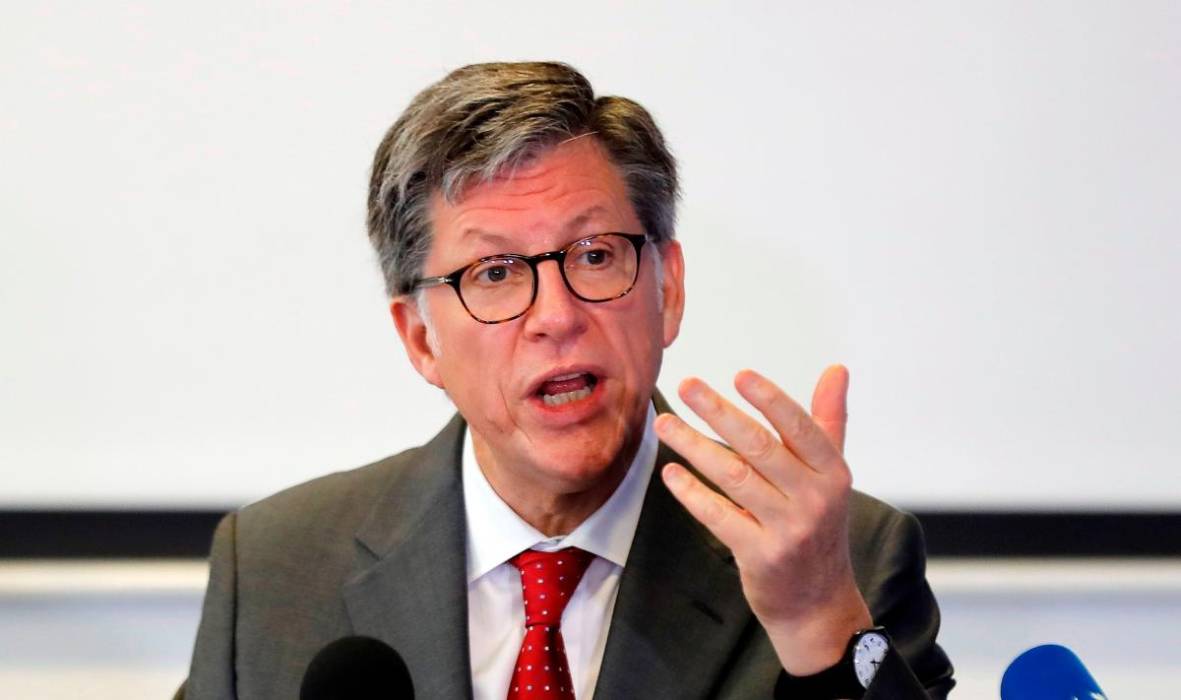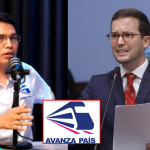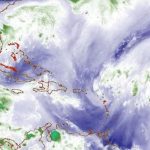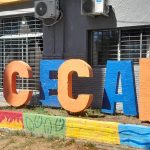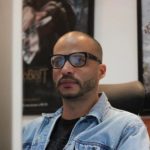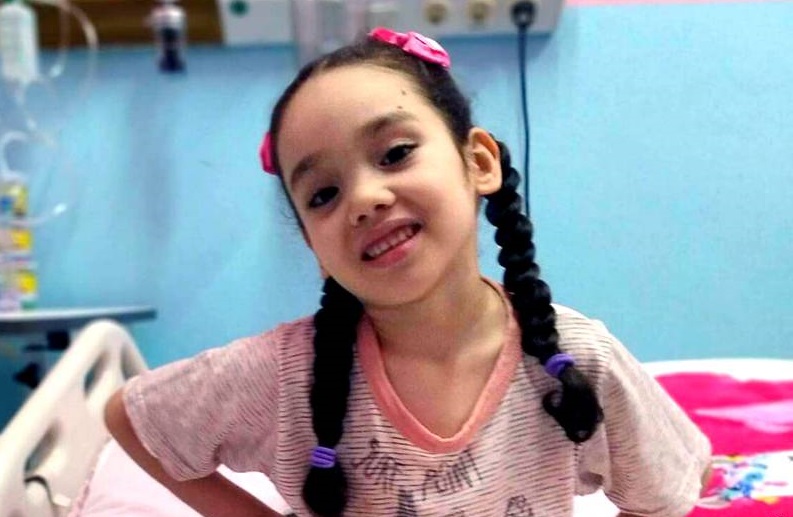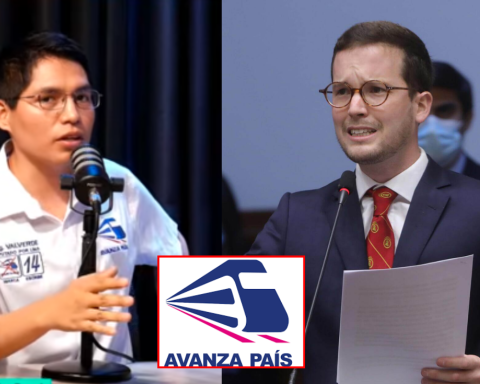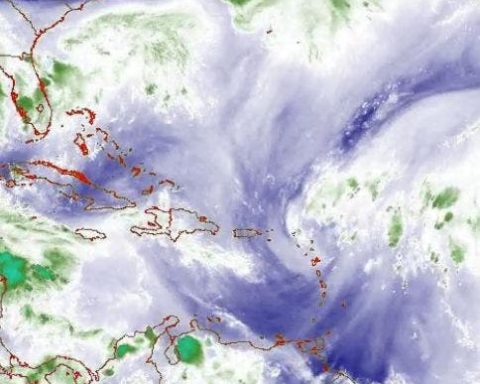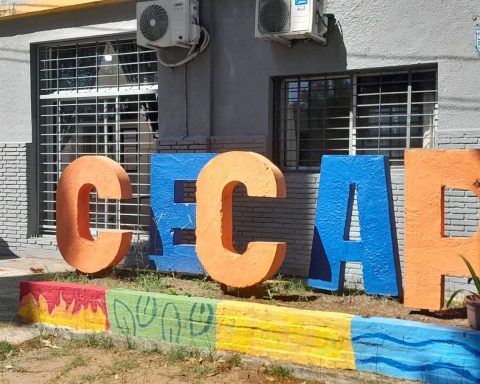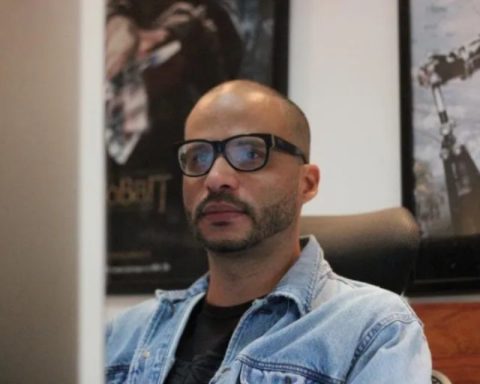The human rights defender and former director of the Americas Division of Human Rights Watch (HRW), José Miguel Vivanco, considers that “Nicaragua is already a one-party regime,” and that actions such as the expulsion of the Missionaries of Charity and the blow to the opposition mayors, “these will not be the last cases, (and) Ortega is going to continue with the plan to eliminate any type of entity that could overshadow him”, because there is no way to stop it.
Daniel Ortega “is betting on the fatigue of the international community,” says Vivanco in this interview with This week Y CONFIDENTIALand advocates “a relaunch of pressure against the dictatorship”, led by the president of Chile, Gabriel Boric, and other Latin American and European governments, from outside the Organization of American States (OAS).
In the last week, the Ortega-Murillo dictatorship expelled the missionaries of Mother Teresa of Calcutta from Nicaragua, after closing their charities, along with 850 other non-governmental organizations that have been canceled. How do you read this aggression from the point of view of human rights, the right of association and even religious freedom?
We are facing a tyrant who governs Nicaragua, along with his wife, as if it were a private estate, and on his property he does and undoes; he has no major obstacles, because he has total control of the country, and there is no way to restrict the absolute exercise of power.
What we have seen is one more arbitrariness and, if these circumstances do not change, it seems to me that they will not be the last cases. He is going to continue with the plan to eliminate any type of entity that could overshadow him, that could represent an alternative. We are not even talking about instances that can criticize the Government, because the Little Sisters of Charity, of Mother Teresa of Calcutta, are not a means of communication that is criticizing the Government, they are in an activity that is essentially humanitarian. And what Ortega does is show the country and the world that he can do whatever he wants, and that there is no way to stop him.
Added to this crime against the Missionaries of Charity is another, which is the persecution against journalists and the staff of the newspaper La Prensa, who covered the expulsion of the nuns. There is an act of censorship, the taking of a photograph or orn video when the nuns are being expelled; and there are three people in jail for that alleged crime that the Police are investigating.
The persecution of Ortega is carried out in such a violent manner, and has been unleashed in such an overwhelming manner that there is no longer, let’s put it that way, a “puppet with a head.” If a photographer took a photo that Ortega or Murillo does not like, and it is simply a photo that accounts for a fact, such as the expulsion of the sisters, that is punished, and that photographer can even end up in prison. It is the brutal and arbitrary exercise of power, which is typical of a dictatorial regime, which we knew in the 20th century, or the 19th century.
The regime ordered the police assault against the only five opposition mayors, when there are four months left for other municipal elections. Is a one-party regime going to be consolidated in Nicaragua?
Nicaragua is already a single-party regime, and what Ortega is doing is strengthening a model that is based on arbitration and fear; The sisters, the Catholic Church, non-governmental organizations, the media, have only one objective, and that is to be able to govern on the basis of terror, where people reach a situation of total paralysis.
How do you evaluate the reaction of the international community to this prolonged crisis in Nicaragua? For example, the governments of Central America are proposing to normalize relations with Nicaragua so that Ortega’s candidate is elected as Secretary General of the Central American Integration System.
I am sorry for what I am going to say, but it seems to me that we run the risk of entering into a kind of international fatigue, an exhaustion around the issue of Nicaragua, where the international community has so many problems on the table, and hears that there is a dictatorship in Central America, which governs arbitrarily, and seeks to consolidate itself for the rest of its life in power, which already has an attitude of almost resignation; and others, on the other hand, comply with supporting sentence resolutions. So, it’s almost like a kind of routine. That is what Ortega and Murillo are betting on, the tiredness of the international community.
But, of course, it is an absolutely unacceptable extreme that neighboring Central American countries allow the election of a candidate from this dictatorship, to such an important regional position. But, can something different be expected from Mrs. Xiomara Castro, in Honduras, who decided not to attend the Summit of the Americas because Venezuela, Cuba and Nicaragua were not invited? Can something different be expected from (Nayib) Bukele, in El Salvador, who is another dictator-in-training? Or Mr. (Alejandro) Giammattei, in Guatemala?
But, it seems that the one who is tipping the balance now is the president of Costa Rica himself, who says that he is evaluating whether to give that consent to Ortega’s candidate to be secretary general of SICA.
We will see if President (Rodrigo) Chávez is finally inclined to reward Ortega with a position as important as that of SICA, without the necessary democratic objections. Costa Rica is part of a triumvirate, to which Ecuador has just joined along with the Dominican Republic, and Panama, which are governments that are defending democratic values throughout the region. But the truth is that it seems that the current ruler of Costa Rica has an ambivalent attitude towards the need to protect, promote and defend democracy in Latin America.
The World Bank approved a loan of 116 million dollars to the Government of Nicaragua to develop health programs against covid-19, despite the fact that the regime has not complied with any of the basic standards of transparency in the face of this humanitarian tragedy. And we saw that the United States, Great Britain, France, the Netherlands and Italy voted against this loan, but there was a majority of countries that approved it.
It is very serious that the World Bank, against the vote of the United States and European nations, has advanced with a loan of this type. They usually say that the main reason is that the loan is aimed at improving the living conditions of Nicaraguans, and that suspending a loan of this nature does not harm the dictatorship, but rather the people of Nicaragua.
But, what is unfortunate is that there was not a broad enough debate, because no one disputes that it is not about punishing the people of Nicaragua, who are already severely punished for the crimes of the Ortega-Murillo dictatorship, but giving resources to a regime , which works on the basis of corruption, opacity, because there is no transparency or accountability there, handing over a blank check, by the World Bank, without noticing that this system of government is a dictatorship, it seems to me which is a serious mistake.
The relatives of the political prisoners are demanding that the prisons of El Chipote be opened to verify the state of health of their relatives who have been victims of isolation and torture for more than a year. But, until today the regime has not allowed the International Red Cross to enter; and the commission of three international independent experts, appointed by the UN General Assembly, has also been rejected. Is this impunity of the regime going to be imposed?
I think so. Ortega is convinced that the decisions to prevent the slightest rendering of accounts before the international community do not have any political cost for him.
If the international community does not restart a strong, concerted process of putting pressure on that dictatorship, Ortega is going to continue doing what he wants without paying the slightest cost for his actions.
The only possible way is that governments, such as that of Chile, which has expressed, both its president and its chancellor, a very strong solidarity towards the democrats in Nicaragua, can design a process where other democracies, both regional and from other parts of the world, organize themselves outside the OAS, with a view to taking steps to put pressure on that dictatorship.
You are talking about a possible renewal of this democratic claim by President Gabriel Boric, recognizing that the OAS is paralyzed; President-elect Petro, in Colombia, has also made very direct statements about this. But, there are other governments in Latin America, called progressive, like those of Mexico, Argentina, that point completely in another direction. So, how can that claim for human rights and democracy be renewed?
I believe that expecting something from the Government of Mexico is not realistic. Andrés Manuel López Obrador has shown that his solidarity or appreciation is greater towards dictatorships than towards the victims of dictatorships or towards citizens; expect something from Argentina, difficult.
I think it is realistic to hope that the Government of Chile can design a coalition that hopefully includes Petro, the new president of Colombia once he takes office, and other countries; but also Europeans, also the United States and Canada. This does not have to be a massive coalition of governments, it can be six, seven governments deeply committed to the Nicaraguan cause, and that they are willing, for example, to send a high-level emissary to make arrangements, not only for the political prisoners, but also with the purpose of achieving a calendar, in the short term, that allows the return of democracy in Nicaragua.
You lived through the change of the dictatorship of (Augusto) Pinochet in Chile, in your country, and also of the other dictatorships of the 20th century in South America. What would you say to the Nicaraguans who today are in this state of resistance and also beginning to have that sort of despair in the difficulties they face in regaining their freedom, and even more so, in reaching truth and justice?
What they are suffering is something that we have experienced in other seasons in Latin America, which are very hard, hopeless periods, of great anguish due to the levels of repression, violations of rights, due to the lack of protection. There is no protection, they are totally exposed to the arbitrary exercise of power; and what needs to be done is not to lose hope, not to lose faith, to continue looking for ways to unite all those who may be in opposition to this brutal and savage regime of Ortega and Murillo, and try to survive with peaceful mechanisms of protest or rejection of the regime, reporting and documenting abuses.
It is a complex, difficult task. But, what history shows us is that these regimes are not eternal and that circumstances (of change) occur, to the extent that there is a civil society that tries to defend its spaces, and a supportive international community. I hope that soon Nicaragua finds a path that allows it to reach institutional normality.
